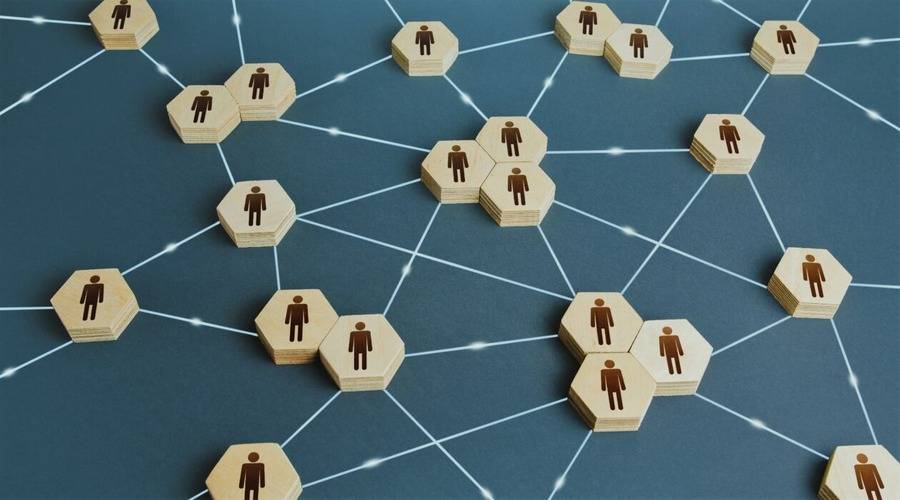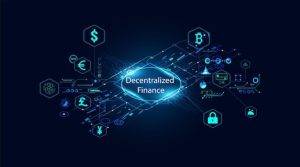The Dark Side of Decentralization: Challenges and Consequences

The Dark Side of Decentralization: Challenges and Consequences
In recent years, decentralization has emerged as a powerful force in various domains, promising increased transparency, efficiency, and freedom from centralized authorities. From blockchain technology to decentralized finance and peer-to-peer networks, the concept of decentralization has captured the imagination of innovators and enthusiasts worldwide. However, like any transformative paradigm, decentralization also comes with its own set of challenges and consequences. This article aims to explore the dark side of decentralization, highlighting the potential pitfalls and discussing the broader impact on society.
Understanding Decentralization
Decentralization refers to the distribution of power, authority, and decision-making across multiple nodes or participants instead of concentrating it in a single entity or governing body. It seeks to foster autonomy, resilience, and inclusivity by eliminating single points of failure and enabling peer-to-peer interactions. Whether it’s decentralized currencies like Bitcoin, decentralized governance models, or decentralized applications (dApps), the underlying principle revolves around empowering individuals and communities.
Decentralization is a concept that revolves around the distribution of power, authority, and decision-making across multiple nodes or participants, rather than concentrating it in a single entity or governing body. It is an approach that seeks to empower individuals and communities by eliminating single points of failure and enabling peer-to-peer interactions.
In decentralized systems, control is dispersed among the participants, allowing for greater autonomy and resilience. Decentralization can be observed in various domains, including technology, finance, and governance. For example, blockchain technology is built upon a decentralized architecture, where transactions and data are stored on a network of computers rather than a central server.
The benefits of decentralization are manifold. It promotes transparency, as transactions and decisions are often recorded on public ledgers accessible to all participants. Decentralization also fosters censorship resistance, as it reduces the risk of arbitrary control and allows for free expression. Additionally, it can enhance efficiency by eliminating intermediaries and reducing administrative overhead.
Understanding decentralization is crucial in navigating the opportunities and challenges it presents. It involves recognizing the potential for increased empowerment, transparency, and efficiency while also addressing concerns related to accountability, regulation, and security.
Benefits of Decentralization
Before delving into the challenges, it’s important to acknowledge the transformative potential of decentralization. Some of the key benefits include:
- Transparency: Decentralized systems often provide greater transparency as transactions and decisions are recorded on public ledgers or distributed networks accessible to all participants.
- Censorship Resistance: By removing central authorities, decentralization reduces the risk of censorship and arbitrary control, allowing for free expression and innovation.
- Efficiency: Decentralized systems can streamline processes by eliminating intermediaries and reducing administrative overhead, resulting in faster and more cost-effective operations.
- Resilience: Distributed networks are inherently resilient as they lack a single point of failure, making them more resistant to cyberattacks, natural disasters, or other disruptions.

The Dark Side Emerges
While decentralization offers numerous benefits, it is essential to acknowledge the emergence of its dark side—the challenges and consequences that accompany this paradigm shift.
One of the challenges is the lack of accountability. With power dispersed across multiple nodes, it becomes difficult to hold specific individuals or entities accountable for their actions. This creates loopholes for illegal activities and exploitation.
Regulatory challenges also arise in decentralized systems. Traditional frameworks struggle to adapt, leading to legal uncertainties and potential regulatory gaps. This can hinder the proper oversight and governance of decentralized platforms.
Security risks pose another concern. Decentralized systems are not immune to vulnerabilities, and malicious actors can exploit these weaknesses. The absence of central oversight can make it harder to address and mitigate security breaches effectively.
Inequality and power concentration can worsen with decentralization. Those with greater resources and technical expertise may dominate decentralized networks, leading to the consolidation of power and exclusion of marginalized communities.
Fragmentation and coordination issues are common in decentralized systems. Lack of coordination can hinder interoperability, limit scalability, and reduce overall efficiency.
Lastly, the decentralized nature of information dissemination can enable the spread of misinformation and manipulation. Without centralized gatekeepers, verifying information accuracy becomes more challenging, potentially eroding trust.
Understanding and addressing these challenges are crucial in navigating the dark side of decentralization and ensuring a balanced and sustainable approach. It requires proactive measures to enhance accountability, establish appropriate regulations, strengthen security measures, promote inclusivity, improve coordination mechanisms, and develop tools to combat misinformation and manipulation.
While decentralization holds immense promise, its implementation and adoption also present several challenges and consequences. It’s essential to address these issues to ensure a balanced and sustainable approach to decentralization. The following are some of the key challenges:
Lack of Accountability
Decentralization often leads to a diffusion of responsibility, making it challenging to hold specific individuals or entities accountable for their actions. This lack of accountability can create loopholes for illegal activities, fraud, and exploitation.
Regulatory Challenges
The decentralized nature of certain technologies and systems poses regulatory challenges for governments and authorities. Traditional regulatory frameworks may struggle to adapt to decentralized platforms, leading to legal uncertainties and potential regulatory gaps.
Security Risks
Decentralized systems are not immune to security risks. Smart contracts, for example, can contain vulnerabilities that malicious actors can exploit, leading to financial losses or privacy breaches. Moreover, the absence of central oversight can make it harder to address security breaches effectively.
Inequality and Power Concentration
Ironically, decentralization can exacerbate existing inequalities and power imbalances. Those with greater resources and technical expertise may dominate decentralized networks, consolidating power and leaving marginalized communities behind.
Fragmentation and Coordination Issues
Decentralization can lead to fragmentation and coordination challenges, especially when multiple entities or nodes operate independently. Lack of coordination can hinder interoperability, limit scalability, and reduce the overall efficiency of decentralized systems.
Misinformation and Manipulation
The decentralized nature of information dissemination can enable the spread of misinformation and manipulation. Without centralized gatekeepers, it becomes harder to verify the accuracy and legitimacy of information, potentially undermining trust and social cohesion.
Consequences of Decentralization
The challenges outlined above can have significant consequences across various domains. Understanding these consequences is crucial to effectively navigate the dark side of decentralization:
Legal and Ethical Dilemmas
Decentralized technologies often raise complex legal and ethical dilemmas. Questions surrounding jurisdiction, intellectual property rights, privacy, and data protection require thoughtful consideration to ensure proper safeguards and adherence to societal norms.
Economic Impact
Decentralization disrupts traditional economic systems, potentially leading to job displacements, shifts in market dynamics, and income disparities. Adapting to these changes and ensuring equitable distribution of resources becomes imperative to avoid unintended consequences.
Social and Political Implications
Decentralization can reshape social and political landscapes. It can empower marginalized communities, challenge centralized authority, and foster new forms of governance. However, it can also lead to social fragmentation, polarization, and increased vulnerability to manipulation.
Technological Limitations
Despite its promises, decentralization faces certain technological limitations. Scalability, energy consumption, and user experience are among the critical areas that require continuous innovation to realize the full potential of decentralized systems.
Balancing Centralization and Decentralization
To address the challenges and consequences, finding the right balance between centralization and decentralization is essential. Hybrid models that combine the best aspects of both paradigms can provide a more nuanced approach. It involves leveraging decentralization where it adds value while ensuring centralized oversight, accountability, and regulation where necessary.
Balancing centralization and decentralization is a critical task in harnessing the benefits of both paradigms while mitigating their respective drawbacks. It involves finding the optimal level of centralization and decentralization in different contexts and domains.
On one hand, centralization provides unified control, streamlined decision-making, and efficient resource allocation. It enables organizations and authorities to enforce regulations, maintain accountability, and ensure consistency. Centralization can be particularly valuable in situations where coordination, standardization, and scalability are paramount.
On the other hand, decentralization empowers individuals, promotes innovation, and fosters resilience. It allows for distributed decision-making, diverse perspectives, and localized adaptations. Decentralization is beneficial in domains where autonomy, transparency, and inclusivity are crucial, such as peer-to-peer networks and decentralized governance models.
Finding the right balance requires careful consideration of the specific requirements and characteristics of each context. It involves evaluating the trade-offs between control and freedom, efficiency and flexibility, and uniformity and diversity. Hybrid models that combine centralized and decentralized elements can offer the advantages of both approaches while mitigating their limitations.
Ultimately, achieving a balance between centralization and decentralization is an ongoing process that demands continuous evaluation, adaptation, and refinement to ensure the optimal alignment with the goals and values of a given system or organization.
Conclusion
Decentralization is a powerful concept with the potential to revolutionize various sectors. However, it’s crucial to acknowledge the challenges and consequences that come with it. By addressing issues related to accountability, regulation, security, inequality, coordination, and misinformation, we can navigate the dark side of decentralization more effectively. Striking the right balance between centralization and decentralization will pave the way for a sustainable and inclusive future.
FAQs (Frequently Asked Questions)
- Q: What is the dark side of decentralization? A: The dark side of decentralization refers to the challenges and consequences associated with the implementation and adoption of decentralized systems, including issues related to accountability, regulation, security, inequality, coordination, and misinformation.
- Q: How does decentralization impact society? A: Decentralization can have significant social implications, empowering marginalized communities, challenging centralized authority, but also potentially leading to social fragmentation, polarization, and increased vulnerability to manipulation.
- Q: Are decentralized systems secure? A: While decentralized systems offer certain security advantages, they are not immune to risks. Vulnerabilities in smart contracts and the absence of centralized oversight can pose security challenges that need to be addressed.
- Q: Can decentralization lead to economic disparities? A: Yes, decentralization can disrupt traditional economic systems and potentially lead to income disparities and job displacements. Ensuring equitable distribution of resources and adapting to these changes becomes crucial.
- Q: How can we strike a balance between centralization and decentralization? A: Striking a balance involves adopting hybrid models that combine centralized oversight, accountability, and regulation with decentralized systems where they add value. It requires careful consideration and continuous innovation.

I’m known as one of the best crypto authors because I take time to understand the technology and write in a way that is easy for others to understand. I can simplify complex concepts and my writing style is engaging. My articles have been featured on some of the top crypto sites and I’mregularly sought out by readers for my insights on the latest news. I’m also a speaker and have discussed crypto at various conferences. If you’re looking for someone who can help you make sense of the ever-changing world of cryptocurrency, then you can get in touch with me.



